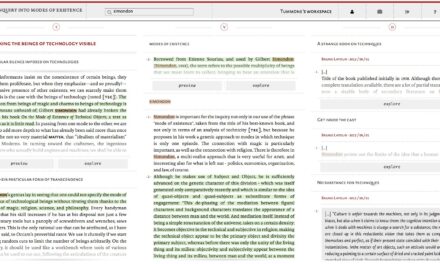No one should be surprised when faced with the unintended consequences of bureaucracy, new or old; Weber, the father of modern studies of bureaucracy, long ago coined the term ‘iron cage’ to signify a system that somehow managed to combine rational means with irrational results (Gregory, 2007:231).
The iron cage – the greatest unintended consequence of them all? Maybe, although you’d have to accept the basic tenet that we live in a version of the totally administered society. This is debatable of course although you could make the argument that the never-ending parade of unintended consequences represents a different kind of bureaucratic prison. The advent of new public management (NPM) certainly didn’t do much to stem the tide – in fact if anything NPM has managed to up the ante when it comes to bureaucracy and its consequences. You could point to a range of sources for this but Robert Gregory is particularly good on the impact of NPM in New Zealand:
The creation of single-purpose agencies dedicated to the production of their clearly specified output classes, and held accountable for so doing by an increasingly system of micro-management, exacerbated problems of inter-agency collaboration in the pursuit of collective public policy purposes. The generation of organisational outputs became more immediately compelling than the achievement of longer-term outcomes; ‘siloization’ and fragmentation in the structural edifice of the state sector created a need for more pragmatic moves to ‘re-join’ previously insulated organisational fiefdoms, especially policy ministries and their relevant operational arms (Gregory, 2007: 228).
The consequences of NPM such as those described by Gregory or evidenced elsewhere – the risk avoidance, impression management and so on – could be seen as the latest fallacy in the unbreakable bond between bureaucratic forms of government and its discontents. The distance and also divide between policy and practice has possible never been greater which makes me wonder why we persist with such a simplistic understanding of how power works. I’m surely not the only one agreeing with Gregory when he states that ‘the greater the belief in precision and certainty in matters of government and governance, the more perverse the consequences that flow from it’ (Gregory, 2007: 243) – a correlation wholly in keeping with Weber’s own spirit of tragedy.
Reference
Gregory, R. (2007) New public management and the ghost of Max Weber: Exorcised or still haunting? In T. Christensen and P Laegreid (eds), Transcending new public management: The transformation of public sector reforms. Surrey: Ashgate.






![Borrowing from Foucault: his notions of discourse and governmentality [PART 1]](https://socialtheoryapplied.com/wp-content/blogs.dir/3/files/2016/01/school-zone.jpg)




